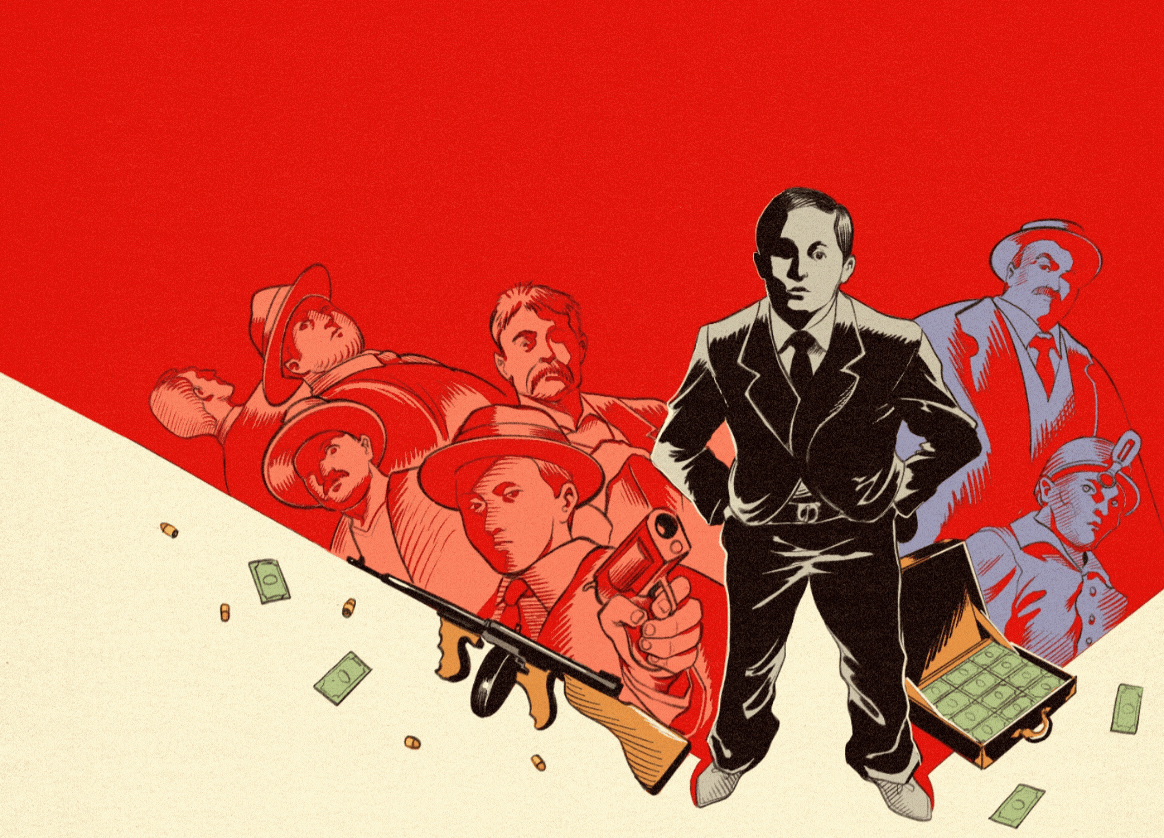Legend of Lucchino, Part IV: Last Stand
In booming Pennsylvania coal country, immigrant Italians were exploited by corporations and terrorized by mafiosi. One brave insider turned against them, risking everything to stand up for workers.
This is the final section of our four-part series, “The Legend of Lucchino: The Man Who Took on the Mob.” If you haven’t read Parts I, II and III yet, click here to dive in.
Life in America rolled on. In November 1911, Lucchino involved himself in a political effort to allow Pittston’s Italian immigrants to vote in local elections. In December, he became an American citizen.
In 1912 and 1913, he and Nellie had two more stillborn children, which was incredibly tragic but hardly uncommon at the time, as parents regularly lost children to disease, hardship or accidents.
The deaths in his family and attempts on his own life had a mellowing effect on Lucchino’s character. During the Rizzo trial, he had come across as brash, cocky and violent. But the picture of him that emerged in this later period was more taciturn, if no less defiant in nature.
Lucchino continued to work as a “special detective” in Pittston, where he kept his friends close — and his enemies closer. Remarkably, he served as a witness for Charles Consagra’s citizenship petition in 1913. The two men were practically neighbors, underscoring how tiny and tight-knit Pittston’s Italian colony really was.
Perhaps an elder mafioso like Charles Bufalino — uncle to future boss Russell, the infamous “Quiet Don” — brokered a temporary peace. Lucchino’s shooting had surely roiled Pittston’s underworld. A need to preserve powerful interests likely made it imperative for the two men to keep out of each other’s way — or, in Lucchino’s case, to turn an occasional blind eye.
Consagra moved forward by becoming a hated subcontractor for the Pennsylvania Coal Company, alongside a shadowy figure named Santo Volpe — marking the Mafia’s first infiltration into the anthracite mines.
An experienced sulfur miner from Montedoro, Volpe became known as the “King of the Night.” He ran the Men of Montedoro through the 1920s and ’30s, ruthlessly crushing any and all opposition. The PaCC’s No. 6 shaft, where he and Consagra oversaw brutal, old-world subcontracting operations, would soon become involved in a number of high-profile murders, putting Consagra at odds with Sam Lucchino once again.


